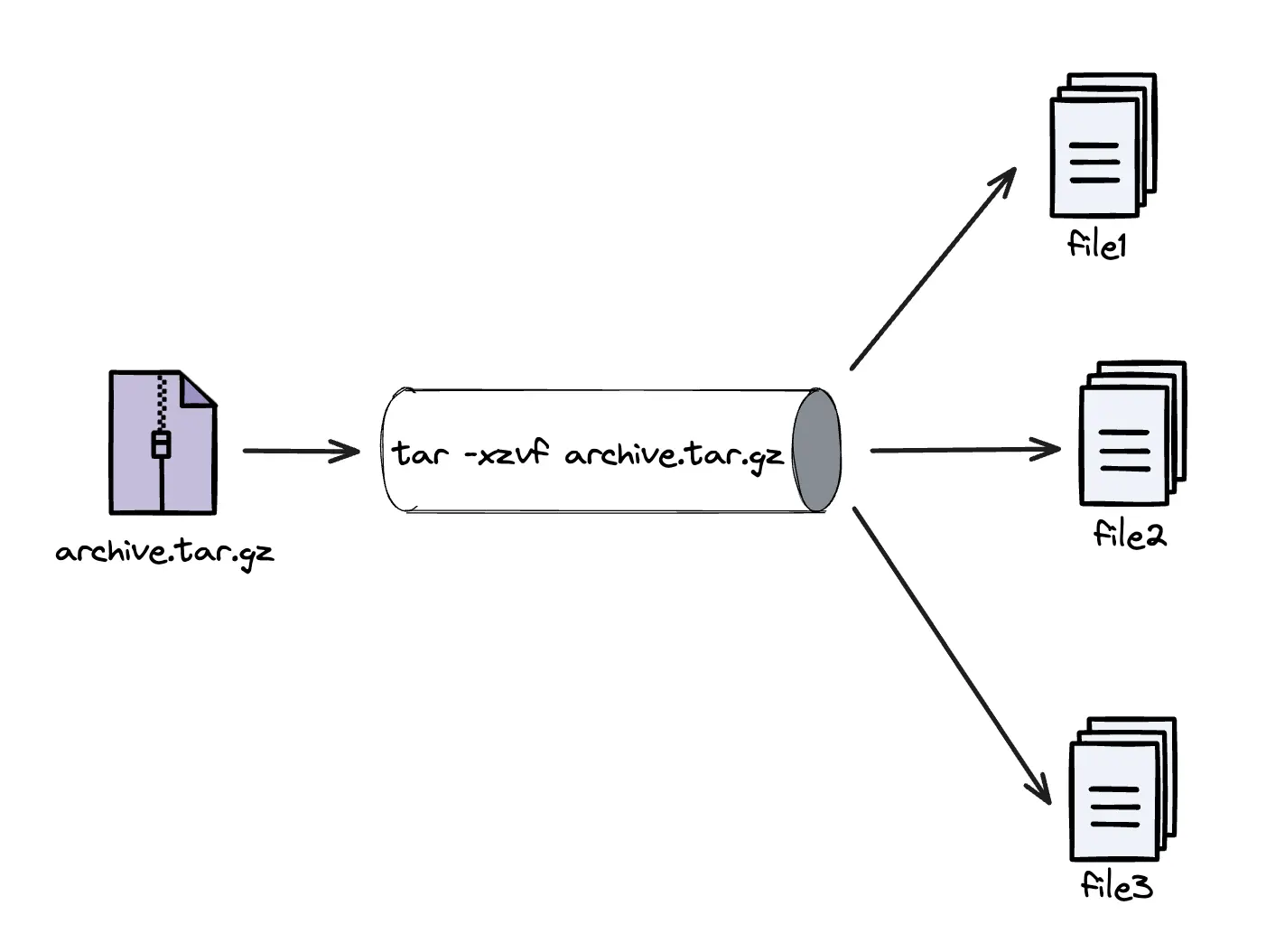How to Extract tar.gz Files on Linux

Extracting tar.gz files on Linux is a common task. These compressed files are used to bundle and compress data, making them easier to store and transfer. In this guide, we'll show you how to extract tar.gz files using the tar command.
Understanding tar.gz Files
A tar.gz file is a compressed archive. It combines two technologies:
- tar: Stands for tape archive. It bundles multiple files into one.
- gzip: Compresses the tar file to save space.

Extracting tar.gz Files
To extract a tar.gz file, use the tar command. Follow these steps:
1. Open your terminal: Press Ctrl + Alt + T or search for "Terminal" in your applications menu.
2. Navigate to the directory: Use the cd command to go to the directory containing your tar.gz file.
cd /path/to/your/file
3. Extract the file: Use the tar command with the -xvzf options.
tar -xvzf filename.tar.gz
Explanation of the Command
- -x: Extract the files.
- -v: Verbose mode. Shows the extraction process.
- -z: Uncompress the gzip file.
- -f: Specifies the file name.
Example
Let's say you have a file named archive.tar.gz in your current directory. To extract it, run:
tar -xvzf archive.tar.gz
This will unpack the archive and extract its contents into the current directory.
Extracting to a Specific Directory
You can also extract the tar.gz file to a specific directory. Use the -C option:
tar -xvzf filename.tar.gz -C /path/to/destination
Example
To extract archive.tar.gz to /home/user/extracted, run:
tar -xvzf archive.tar.gz -C /home/user/extracted
This will unpack the files into the specified directory.
Verifying the Extraction
After extraction, it's good to verify the files. List the contents of the directory:
ls /path/to/destination
Check the files to ensure everything was extracted correctly.
Common Errors and Solutions
1. File not found: Ensure you're in the correct directory and the file name is accurate.
2. Permission denied: Use sudo to run the command as an administrator:
sudo tar -xvzf filename.tar.gz
3. Invalid file format: Confirm the file is a valid tar.gz archive.
Conclusion
Extracting tar.gz files on Linux is straightforward with the tar command. This guide covered the basic steps to help you manage compressed files efficiently.
Enhance Your Network Performance
For advanced network management, try Akmatori. Akmatori is a globally distributed TCP/UDP load balancer. It ensures your services are fast and reliable, handling complex setups and heavy traffic with ease.
Discover the benefits of using Akmatori for your load-balancing needs.
